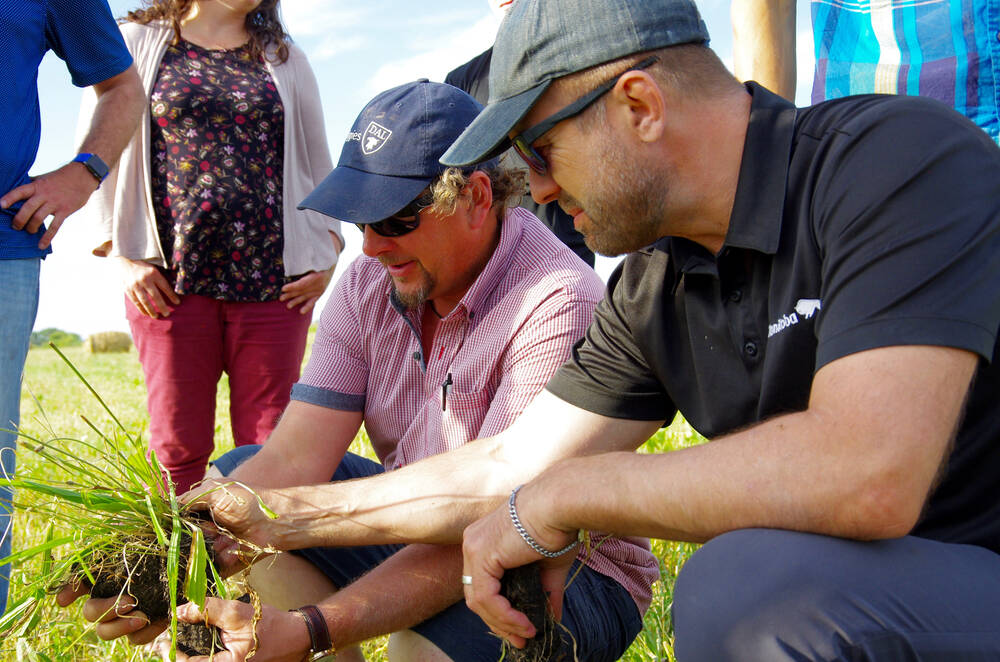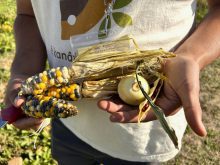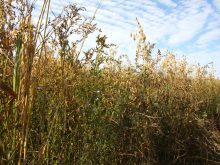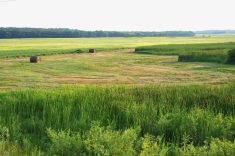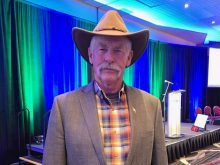Those in a Manitoba producer-led group say they’re happy to see Canada’s Senate take an active interest in soil health.
In early June, the Senate’s committee on agriculture and forestry released its report on the state of the nation’s soil. That report, “Critical Ground: Why Soil is Essential to Canada’s Economic, Environmental, Human and Social Health,” argues that Canada requires a long-term soil conservation and protection strategy.
The Manitoba Forage and Grassland Association agrees. In a June 11 blog post, MFGA executive director Duncan Morrison said the report “digs deep into the critical role of soil in mitigating climate change, contributing to biodiversity and putting food on tables.”
Read Also
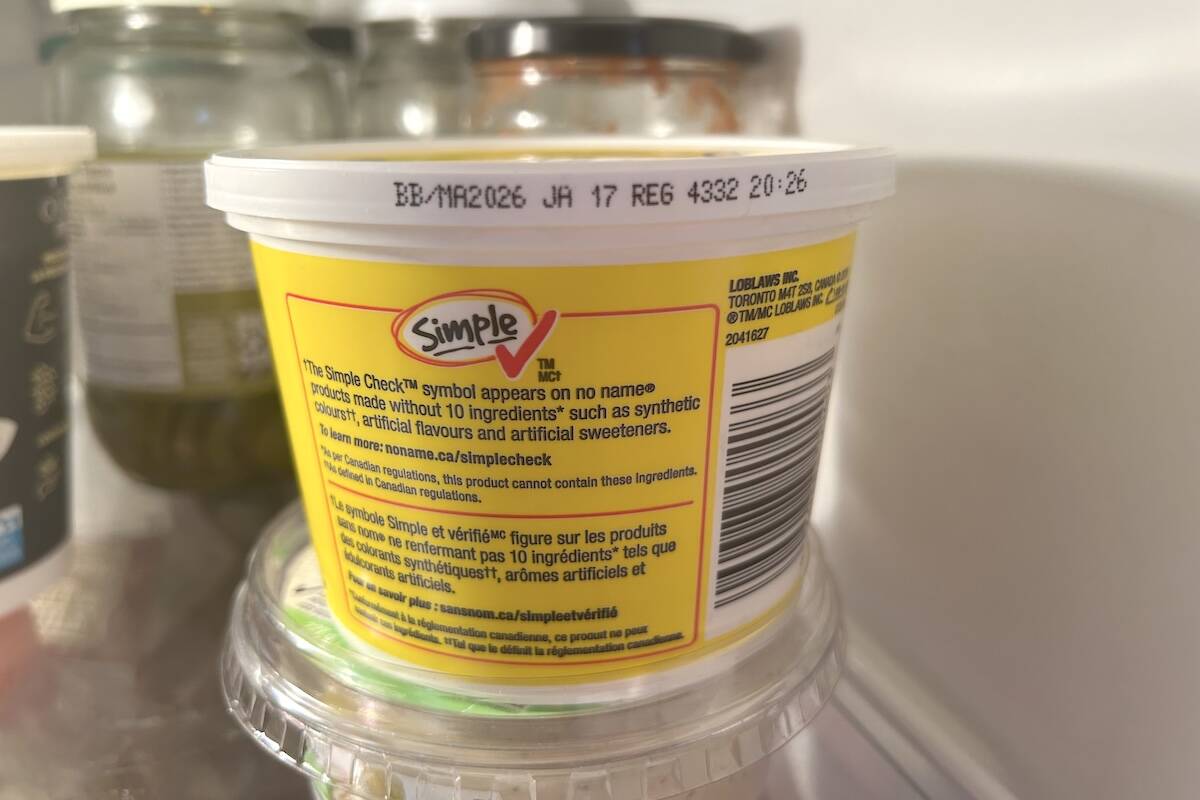
Best before doesn’t mean bad after
Best before dates are not expiry dates, and the confusion often leads to plenty of food waste.
“Well done, all,” chair Mike Duguid added.
Why it matters: Movements like regenerative agriculture, which prioritize soil health, have become buzzwords on the farm and among policy makers.
The MFGA is among the conservation and farm groups that see grasslands as a valuable carbon sink and should be recognized as such. The organization has also dug a niche in the province as a champion of regenerative agriculture. Morrison describes its brand as the “early adopters and the very-interested-in-what-the-early-adopters-are-doing farmers.”
“We see the Senate soil report jump-starting discussions and actions around a potential system that needs more farmers, more societal attention, and more resources via government, industry and philanthropic support via research, peer to peer learning, extension and finances,” he said.
The report
The Senate report comes 40 years after the ground-breaking “Soil At Risk” report led by Saskatchewan Senator Herb Sparrow.
It found that many changes after that first report, such as the widespread move to no-till farming, helped improve soil management and crop yields. But “these gains have also masked the effect of continued soil degradation and loss of agricultural land in every region of Canada.”
The report said climate change, extreme weather events, urbanization and misread outcomes of soil management practices are contributing to the problem.
Senator Rob Black, committee chair, said development of a strategy must be the priority among the 25 recommendations in the report. It should contain concrete targets, timelines and provisions that are regularly reviewed.
The committee suggested the government appoint a national soils advocate and designate soil as a strategic national asset.
Deputy chair Paula Simons said there is symbolism in such a declaration, in that it raises soil’s profile but also has potential public policy implications.
“It would suggest that when provinces and municipalities are doing land use planning, when the federal government is doing land use planning on its own Crown land, that we consider the importance of soil, just as we consider the importance of water and air pollution,” she said.
Black likened the situation to a three-legged stool, saying soil has been the short leg of that stool for too long.
The committee recognized that soils vary widely across the country and recommended reinstating the Prairie Farm Rehabilitation Administration, an organization founded in 1935 in response to the western Canadian drought. It was dissolved in 2013.
Simons, who is from Alberta, said 75 per cent of Canada’s agricultural land is on the Prairies. Thus, the Prairies are critically important to the both the agricultural economy and climate mitigation.
A key message the committee received during its work was about the lack of a central database and consensus on how to measure, report and verify soil health. It said Ottawa, provinces, territories, academia and producers should work together to create a national soils institute and database that everyone can use.
In the north, a national permafrost assessment program is required.
Other recommendations include creating and delivering a crop insurance program that incentivizes ecological goods and services that producers can provide, creating a “viable and valuable” carbon market, and implementing tax credits for producers who have adopted or are adopting new technologies to support soil health. Early adopters should not be left behind, the committee said.
Better mapping, extension funding, a national strategy to remediate contaminated soils and an annual national summit on soil health are also suggested.
The committee heard from more than 150 witnesses and visited farms, research centres and other jurisdictions during its research.
Duguid said he was impressed by the scope of the study and now the report’s recommendations must be put into action.
Where to from here?
Federal agriculture minister Lawrence MacAulay’s office thanked the committee for its work.
“Soil health is directly tied to the success of our agricultural sector and the prosperity of Canadian producers and we will review the report and recommendations closely,” he said.
Simons noted the committee is “not the boss of anybody” and can only urge the government to recognize the call to action.
Morrison said the MFGA is “enthusiastic to see what the Senate report yields, and we are determined to collaborate in every significant way possible.”
The urgency of the issue should be prioritized, he added.
“Across the board, farmers are motivated, learned business minds. Many simply are playing their farm cards in the farming market that pays best. No one can fault this mindset. It pays, it plays.
“From MFGA perspective, we believe the Senate report can be the emphasis to look at broad-brush systems that reward farmers for soil-embracing work that benefits their farms, families, communities and society via water, biodiversity, resiliency and farm profitability.”

